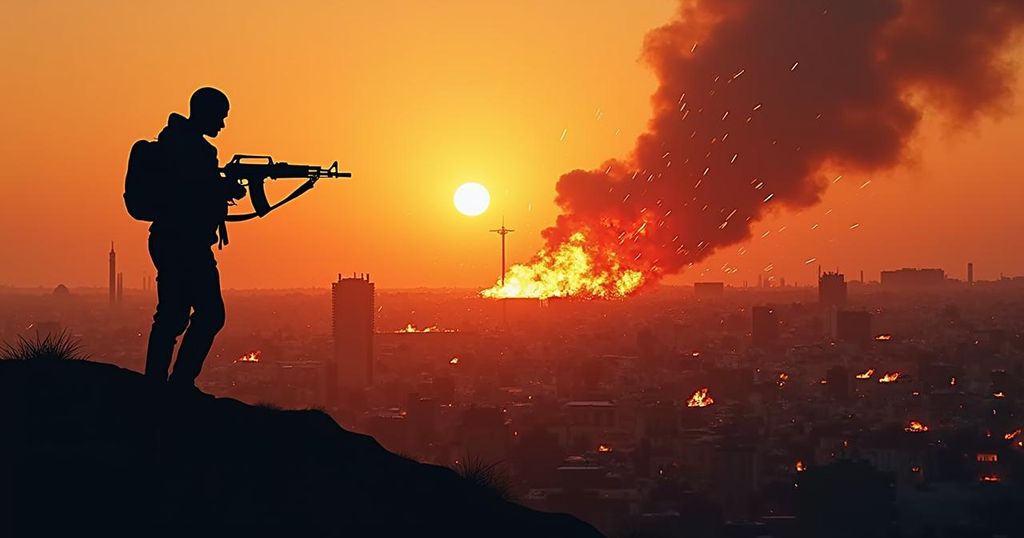Israel is currently in conflict with Hezbollah, having intensified military actions following the assassination of Hezbollah leader Hassan Nasrallah. Concerns persist regarding the potential escalation of this conflict, including public support for further military engagement, the historical context of the hostilities, and increasing strains on Israeli military resources. The conflict is closely intertwined with regional dynamics and risks broader implications for the Middle East.
Israel is currently engaged in intense conflict with Hezbollah along its northern border, giving rise to concerns regarding the potential escalation into an all-out war. The situation, characterized by daily missile exchanges and retaliatory strikes, has compelled Israel to reassess its military engagement with Hezbollah, particularly following significant losses inflicted on the group over the past few weeks. The recent assassination of Hezbollah’s leader, Hassan Nasrallah, marks a pivotal shift, as Israel aims to dismantle Hezbollah’s capabilities amid heightened regional tensions. Despite the heavy military engagements, uncertainties linger over the duration and eventual toll of this confrontational period. This conflict has historical roots, stretching back to the early 1980s when Hezbollah was formed in response to Israeli actions in Lebanon, primarily aimed at the Palestine Liberation Organization. The armed group has endured as a potent adversary, morphing into a substantiated proxy for Iran and maintaining a well-armed presence along Israel’s border. Skirmishes had largely been overshadowed by Israel’s rigorous military campaign against Hamas in Gaza, but the recent hostility from Hezbollah has drastically altered the focus. The public sentiment in Israel leans towards confidence in a military solution, though the political ramifications and the potential for prolonged military engagement pose substantial risks. Past invasions of Lebanon yielded mixed results, with confronting Hezbollah presenting considerable challenges due to its established infrastructure and deep local support. As Israel prepares for a possible ground invasion, the implications for Israeli society, military reservists, and international relations remain a focal point of concern.
The fighting between Israel and Hezbollah represents a continuation of enduring conflicts rooted in historical grievances and military engagements since the 1982 invasion of Lebanon by Israel. Hezbollah’s emergence as a significant military player has transformed the landscape of both Israeli and Lebanese conflicts. The group’s sustained threats and military prowess have mandated Israel to engage in recurrent military operations, often leading to controversial outcomes. Hezbollah’s strategic alliance with Iran further complicates regional security dynamics, making any military confrontation a matter of global concern.
In conclusion, the ongoing clashes between Israel and Hezbollah signify a perilous moment in Middle Eastern dynamics, with implications that extend beyond the immediate conflict. The escalation of violence not only threatens regional stability but poses considerable risks to Israeli society, military operational capabilities, and diplomatic relations, particularly with the United States. The forthcoming strategies employed by both Israel and Hezbollah will shape the future trajectory of these long-standing hostilities.
Original Source: www.jpost.com






